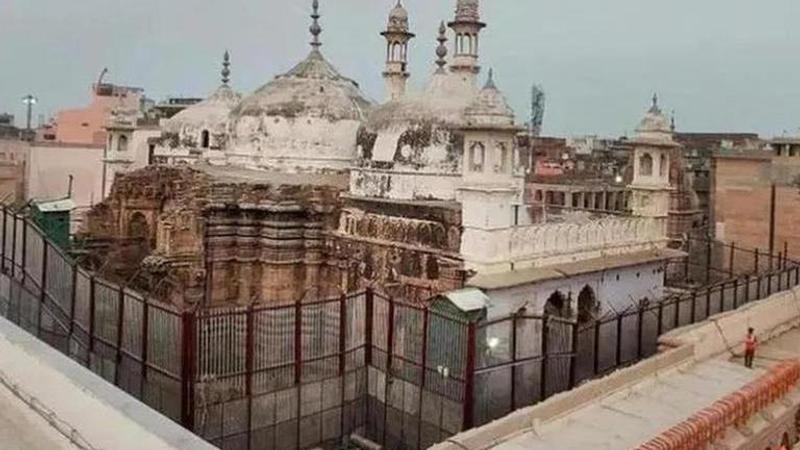Published 11:10 IST, August 3rd 2023
Gyanvapi case: Allahabad HC allows ASI survey, Complete timeline of events
The Allahabad High Court upheld the July 21 verdict of the Varanasi District Court allowing the ASI to conduct a scientific survey of the Gyanvapi complex.

The Allahabad High Court on Thursday (August 3) upheld the July 21 verdict of the Varanasi District Court allowing the Archaeological Survey of India (ASI) to conduct a scientific survey of the Gyanvapi mosque complex, adjacent to Kashi Vishwanath temple in Varanasi, excluding the 'Wazukhana' area which has been sealed.
The court has dismissed the Muslim side's plea which mentioned that the survey may damage the structure of the 'mosque.' The court asserted that the ASI survey of the Gyanvapi complex is 'necessary in the interest of justice.' According to the Hindu side's lawyer, the scientific survey will begin 'without any delay.'
After the Allahabad HC order, UP Deputy CM Keshav Prasad Maurya asserted that the ASI survey will unearth the hidden truth of the Gyanvapi complex. "I welcome this verdict. I am confident that the truth will come out after the ASI survey and the Gyanvapi issue will be resolved," he said.
In conversation with Republic earlier, Hindu side lawyer Vishnu Jain Shankar highlighted the importance of the ASI's modern techniques, and said, "We told the court that there are many shield walls in Gyanvapi behind which there could be many things... The ASI survey will help ascertain the religious nature of the place."
Gyanvapi row: Timeline of events
- April 1991: A group of Hindu Priests filed a plea in the Varanasi Court seeking the right to pray in the Gyanvapi complex. The Hindu side claimed that the mosque was built on the ancient Kashi Vishwanath temple.
- September 1998: Varanasi Court agreed to hear the case. Meanwhile, the Allahabad High Court halted the proceedings of the lower court.
- December 2019: Fresh petitions sprayed in Varanasi Court seeking a survey of the Gyanvapi complex by the ASI.
- February 2020: The Allahabad High Court again holds proceedings in the lower court. A few months later, the Varanasi court again started hearing the 2019 petitions.
- August 2021: Plea filed before a Varanasi civil court by five Hindu devotees seeking permission to offer daily prayers at the Gyanvapi mosque.
- May 2022: Supreme Court refuses interim order of status quo on the survey of the Gyanvapi-Shringar Gauri complex.
- May 2022: SC passes interim order directing the district magistrate of Varanasi to ensure the protection of the area inside the complex.
- Oct 2022: Varanasi district court rejects plea for carbon dating of the Shivling.
- Nov 2022: SC agrees to set up a bench to hear the Gyanvapi case.
- May 12, 2023: Allahabad High Court orders determination of the age of the Shivling using modern technology.
- May 19, 2023: SC defers scientific survey to determine the age of Shivling.
- July 21, 2023: Varanasi district court directs the ASI to conduct the survey -- including excavations, wherever necessary -- to determine if the mosque was built at a place where a temple existed earlier.
- July 24, 2023: The ASI commenced the scientific survey of the mosque complex with a 30-member team of experts.
- July 24, 2023: SC halts ASI's survey at premises till 5 pm on July 26. The apex court asked the Allahabad HC to hear the mosque panel's plea.
- July 25, 2023: The Muslim side in the Gyanvapi Shrinagar Gauri dispute case, moved to Allahabad High Court, challenging the Varanasi Court order.
- August 3, 2023: The Allahabad High Court allowed the Archaeological Survey of India (ASI) to resume its scientific survey of the Gyanvapi mosque complex, saying that it was 'necessary in the interest of justice.'
Updated 12:08 IST, August 3rd 2023




